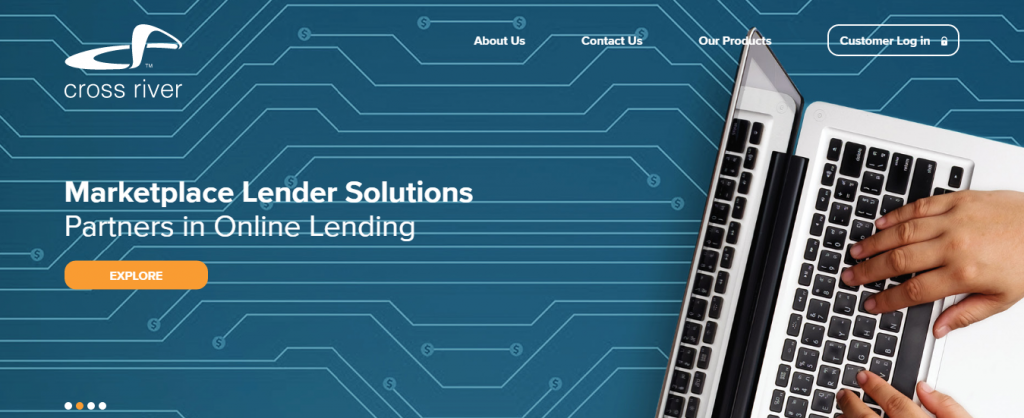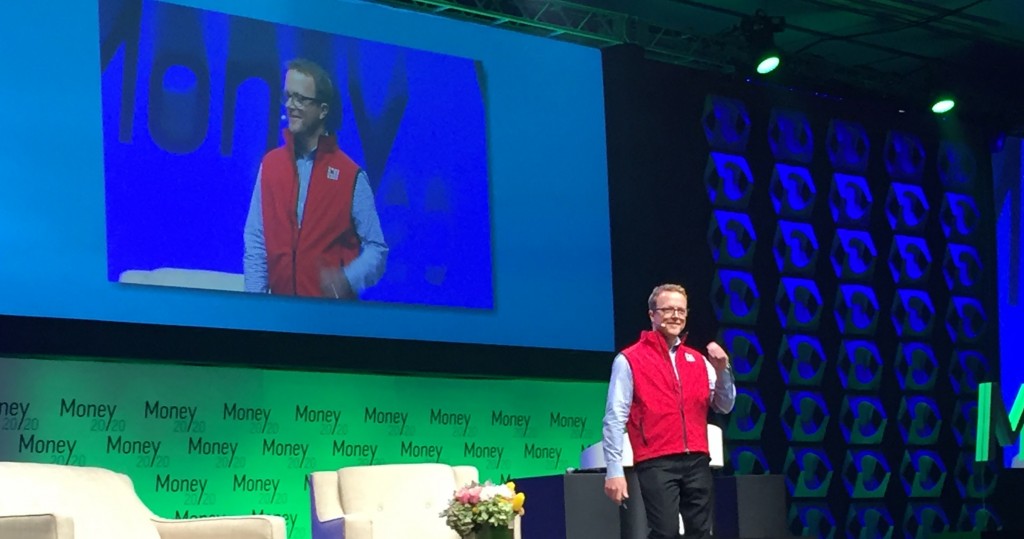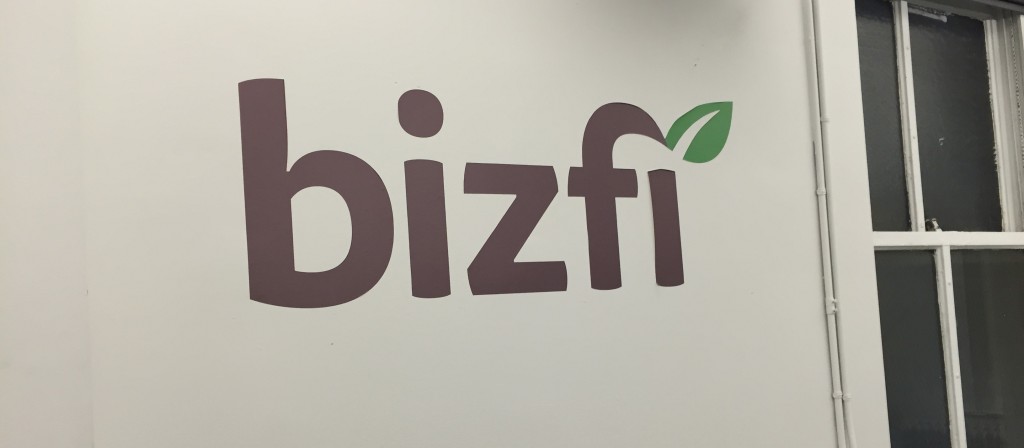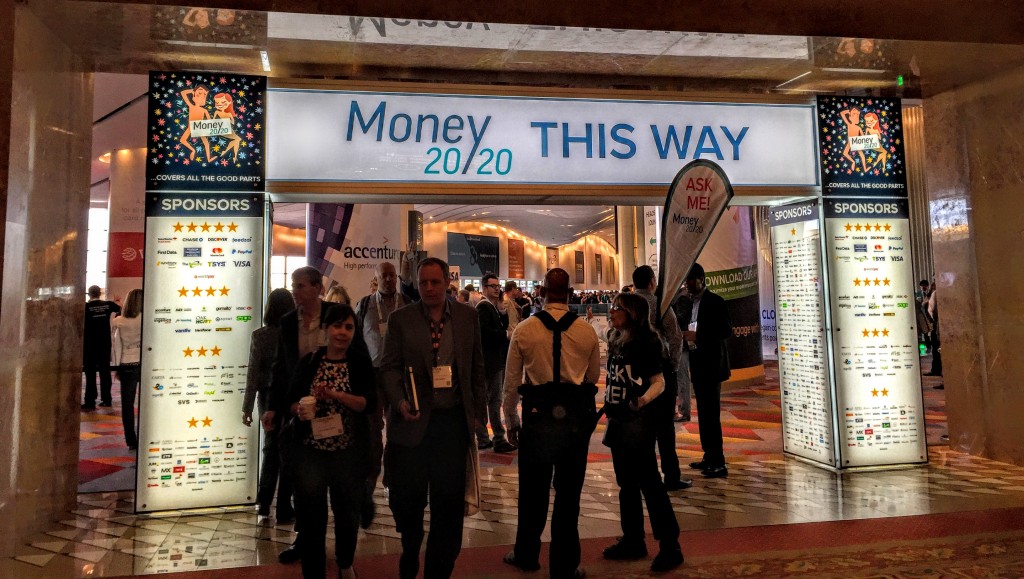Marketplace Lending
Brief: Cross River Bank Raises $28 Million in Equity
November 1, 2016
New Jersey-based Cross River Bank, a marketplace lending partner bank, secured $28 million in equity, led by Boston-based investment firm Battery Ventures, along with Silicon Valley venture capital firms Andreessen Horowitz and Ribbit Capital.
The capital will be used to expand the bank’s technology and product-development teams, invest in compliance infrastructure and plan new business lines to the online lending industry. Battery General Partner Scott Tobin will also join the Cross River board of directors.
Cross River originated over $2.4 billion loans in 2015 and partners with over 15 online lenders including Affirm, Borrowers First, Marlette Funding, Rocket Loans and Upstart.
What Next? SoFi Wants to Sell Life Insurance
October 31, 2016After student loans, mortgages and parent loans, Sofi is making a new leap into life insurance.
The company is set to launch a life-insurance product in partnership with Protective Life Insurance Co, that was acquired by Japanese life insurance company Dai-ichi, last year. The Wall Street Journal reported that SoFi obtained licenses to operate as an insurance broker in states including Arkansas, California, Florida, Massachusetts, New York and South Dakota.
According to KPMG and CB Insights report ‘Pulse of Fintech 2016,’ the first two quarters of 2016 saw $1 billion in VC investment, making insurance “ripe for disruption.”
“Insurers across the world are struggling with a myriad of challenges: low levels of consumer trust, high competition, a low interest rate environment, shrinking profitability and legacy IT issues. Addressing these challenges and creating opportunity for growth can be difficult as any solutions, especially those involving technology, can be complicated, expensive and potentially high risk,” the report said.
Founded in 2011 by Mike Cagney and his fellow classmates at Stanford School of Business, SoFi started refinancing student loans with a pilot loan program of $2 million. Since then, the company has branched out into mortgages, personal loans, parent loans and wealth management services.
For Lending Club: Downturn Readiness, a $1 Trillion Opportunity and No Origination Fees?
October 26, 2016
The Lending Club that presented at Money2020 this week was not the same Lending Club of years past. Not only is keynote speaker Scott Sanborn a different kind of CEO than his predecessor Renaud Laplanche but also the regulatory environment in which he must govern has changed. In the era of government interest, Sanborn told a huge conference audience that the company thinks about two things, regulation and downturn readiness. In that regard, they sounded very much like a bank.
But there was good news too. “I remain very bullish about the future,” Sanborn said. That’s in part because the company announced earlier that they were entering the $1 trillion auto finance market with a refinancing product.
What’s noteworthy is that auto refinance borrowers will pay no origination fees to Lending Club, a stunning departure from the 1% – 6% origination fees charged on their personal loans. One can’t help but wonder if that move was a response to new competition, namely Marcus (operated by Goldman Sachs), whose new personal lending platform charges no-late-fees, no-origination-fees, nor any fees at all outside of interest charges. While Marcus is not offering auto loan refinances in their initial rollout, Lending Club may be using this market to try and master the no-origination-fee model to compete against Goldman Sachs and any other new bank entrants in the future on every playing field.
Brief: Lendio Raises $20 million for Growth Marketing
October 25, 2016 Salt Lake City-based loan marketplace Lendio raised $20 million in new funding through a round led by Comcast Ventures and Stereo Capital. Other participants included Napier Park, Blumberg Capital, Tribeca Venture Partners and North Hill Ventures, all of whom were exiting investors. Lendio plans to use the funds towards growth marketing.
Salt Lake City-based loan marketplace Lendio raised $20 million in new funding through a round led by Comcast Ventures and Stereo Capital. Other participants included Napier Park, Blumberg Capital, Tribeca Venture Partners and North Hill Ventures, all of whom were exiting investors. Lendio plans to use the funds towards growth marketing.
“Over the past year, we’ve been busy testing new customer acquisition strategies. With this new round of capital, we now have the resources to launch these exciting new initiatives that will help us to expand our brand awareness and help small businesses find the best loan for any situation,” said Lendio CEO Brock Blake.
Lendio is a loan marketplace that has done partnerships right. The company’s three lucrative deals with American Express, GoDaddy and Staples fueled $63 million in Q3 funding. Last month, the company added Detroit-based working capital financing company Supplier Success to its platform, to improve capital access to businesses owned by minority and women owners.
“Lendio’s success securing meaningful partnerships and impressive year-over-year growth shows the company is poised to go big,” said Dave Zilberman, managing director of Comcast Ventures, who will join Lendio’s board of directors as part of the transaction.
Lending Club Bets on Auto Loan Refinance
October 25, 2016Lending Club is after a new market now – the $40 billion auto loan refinancing market.
The marketplace lender is offering loans in the range of $5,000 – $50,000 with APRs ranging from 2.49 percent to 19.99 percent for terms up to 72 months. The product, initially available only in California, will be launched nationwide in 2017.
With the auto loan debt market hovering near $1 trillion, Lending Club is after the $40 billion refinance market. The lender said that consumers pay 200 bps higher while getting their car financed through car dealers and is confident that its refinancing product, priced 1% – 3% lower than competition may save consumers an average of $1,350 over the tenure of the loan.
It hired Todd Denbo, a former Wells Fargo executive with 17 years of experience in credit card and auto loans to head the project. The company is targeting borrowers with a FICO score of 640+, who have made a minimum of three on-time payments.
Bizfi Appoints Alternative Finance and Payments Veteran John Donovan as CEO
October 24, 2016
New York – October 24, 2016 – Bizfi (www.bizfi.com), a leading fintech company with a platform that combines aggregation, funding and a marketplace for small businesses, announced its board of directors has appointed John Donovan as the Company’s chief executive officer (CEO). Donovan is a 30-year veteran in the payments and alternative finance industry serving both small businesses and consumers.
Over the course of his career, Donovan helped pave the way for the development of the fintech and alternative finance industry. Having worked for nearly two decades with MasterCard, Donovan was integral to conceiving and developing new products, launching a global card program and growing the Company’s global electronic payments offerings. As one of the founding employees of Lending Club, Donovan helped create the direct-to-consumer fintech industry that has transformed the way consumers and financial institutions interact with one another. During his tenure at Lending Club, he held various roles including chief operating officer, board member and executive vice president of corporate development.
“Bizfi is transforming the way small businesses are accessing growth and working capital. John Donovan brings a unique combination of industry-related expertise, strategic vision and proven management experience which will accelerate this transformation and further enhance our market-leading position in the fintech space,” said Tom Breitling, Bizfi Chairman.
 “I have known the Bizfi team for many years and have been extremely impressed with the market presence the company has established in the fintech space,” said John Donovan. “I have spent my career building and operating companies, conceptualizing new products and increasing shareholder value. It is clear that the Bizfi team have built the single best way for small businesses to access capital in a quick, frictionless and simple way.”
“I have known the Bizfi team for many years and have been extremely impressed with the market presence the company has established in the fintech space,” said John Donovan. “I have spent my career building and operating companies, conceptualizing new products and increasing shareholder value. It is clear that the Bizfi team have built the single best way for small businesses to access capital in a quick, frictionless and simple way.”
With originations growing over 35% over the past year, Bizfi continues to demonstrate record volumes, and is on track to approach nearly $600 million of fundings this year, highlighting the strength and scalability of the overall platform and the company’s leading position in the fintech industry.
Since its creation in 2005, Bizfi has provided more than $1.9 billion in capital to more than 33,000 small business owners. Earlier this year, the Company announced partnerships with Western Independent Bankers (WIB) and the National Directory of Registered Tax Return Preparers & Professionals (PTIN). These partnerships are providing hundreds of thousands of small business owners across the country with access to financing through the Bizfi platform in addition to the ability to visit Bizfi.com, the Company’s lending marketplace.
About Bizfi
Bizfi is the premier fintech company combining aggregation, funding and a participation marketplace on a single platform for small businesses. Founded in 2005, Bizfi and its family of companies have provided in excess of $1.9 billion in financing to more than 33,000 small businesses in a wide variety of industries across the United States.
Bizfi’s connected marketplace instantly provides multiple funding options and real-time pre-approvals to businesses from a wide variety of funding partners. Bizfi’s funding options include short-term financing, franchise financing, lines of credit, equipment financing, medical financing, invoice financing, medium-term loans and long-term loans guaranteed by the U.S. Small Business Administration. The Bizfi API provides a turnkey white label or co-branded solution that easily allows strategic partners to access the Bizfi engine and present their clients with financial offers from Bizfi lenders all while maintaining their customer’s user experience. A process that once took hours, now takes minutes.
Media Contact:
Abbie Sheridan / Kenneth Cousins
KCSA Strategic Communications
asheridan@kcsa.com / kcousins@kcsa.com
212-896-1207 / 212-896-1254
Bizfi Sales:
855-462-4934
bizfisales@bizfi.com
Money2020 Kicks Off – With part of last year’s prophecy fulfilled
October 23, 2016
The industry’s biggest conference by attendance kicks off today at The Venetian in Las Vegas. With more than 10,000 attendees and 3,000 speakers, topics range from payments to financial services innovation.
During last year’s conference, alternative lenders appeared to be waiting for a shakeout. Has that happened?
It’s starting to. Since then, online lender Vouch Financial shut down and CircleBack Lending announced that they are no longer issuing loans. Lending Club’s founder resigned in a scandal, the pure marketplace lending model died and no other alternative lenders managed to IPO in 2016. Even a handful of merchant cash advance firms have quietly exited the market.
Valuations are down as well, perhaps more in line with reality. Robert Greifeld, the CEO of Nasdaq, warned attendees about the validity of private market valuations of fintech companies at Money2020 last year. “A unicorn valuation in private markets could be from just two people,” he said. “whereas public markets could be 200,000 people.” And the public markets have been tough. Lending Club’s stock has fallen by 67% since then while OnDeck’s has dropped by 52%.
And yet much of alternative lending is still standing and still raising capital. Over the summer, Fundry secured a new $75 million credit line, Bizfi secured a $20 million investment from Metropolitan Equity Partners, Pearl Capital secured $20 million from Arena Investors, and Legend Funding secured a $3 million debt facility from Ango Worldwide.
We’ll see what happens this week at The Venetian.
Have Online Consumer Loans Served as a Replacement For Home Equity Loans?
October 22, 2016
At the late September Marketplace Lending and Investing Conference in New York City, loanDepot CEO Anthony Hsieh laid out his view on the state of the union.
“As a nonbank lender, you must be patient,” he preached. Hsieh knows something about patience. His company’s planned November 2015 IPO was cancelled due to adverse market conditions and six months later, the scandal at Lending Club sent just about all marketplace lenders reeling.
“I’m still trying to figure out what’s been going on over the last 6-9 months,” Hsieh joked in front of the audience. No rookie to lending, Hsieh said he has been in consumer lending for 32 years, before FICO scores were around, and as he viewed it, through five credit cycles.
“The mortgage industry is still very archaic,” he said. “It hasn’t found the digital age yet.” He explained that it can take weeks or months to do a cash-out depending on where a borrower lives because of the appraisal process. And since the Great Recession, those borrowers that used to tap into their home equity have been going somewhere else.
One thing they noticed was that the credit and financial profiles of their borrowers were nearly identical whether they took a home loan or a personal loan, meaning that it’s all the same borrower base.
Both borrowers had a 724 FICO on average.
Home loan borrowers had an average age of 49 versus an age of 51 for personal loan borrowers.
Home loan borrowers had an average income of $82,500 versus an average income of $82,300 for personal loan borrowers.
Home loan borrowers had an average 100% home ownership rate versus a 94% home ownership rate for personal loan borrowers. But here’s where it gets different. The average home loan amount is $274,000 while personal loan sizes average only $16,076. The average coupon percentage is 3.88% for home loans versus 13.87% for personal loans.
The motivations for borrowing are also similar. 92% of personal loan borrowers claim to be using the funds either for debt consolidation or home improvement. So until home equity returns as a major source of consumer cash, which Hsieh believes it will, consumers will continue to seek all types of alternatives.
One way they’ve been able to measure that demand is from the sheer volume of leads they acquire, in the range of 600,000 leads every month, a level that has surprised even Hsieh. Not that they don’t work to generate those prospects considering they spend more than $150 million a month in marketing.
Conversions, he noted however, have been quite low for many lenders because so many are monoline. But even so, “today’s cycle is fundamentally different from the previous 4 cycles,” Hsieh agued, citing that people working in the industry this time around are genuinely smarter. And despite the fact that loanDepot operates in the era of the CFPB, a judge, jury and executioner-style government agency, Hsieh remains optimistic. “I respect the CFPB,” he said. “I think they’re a great agency.”
All data and quotes were sourced from Anthony Hsieh’s presentation at the Marketplace Lending & Investing Conference in New York City on September 27th. deBanked did not interview him personally.





























